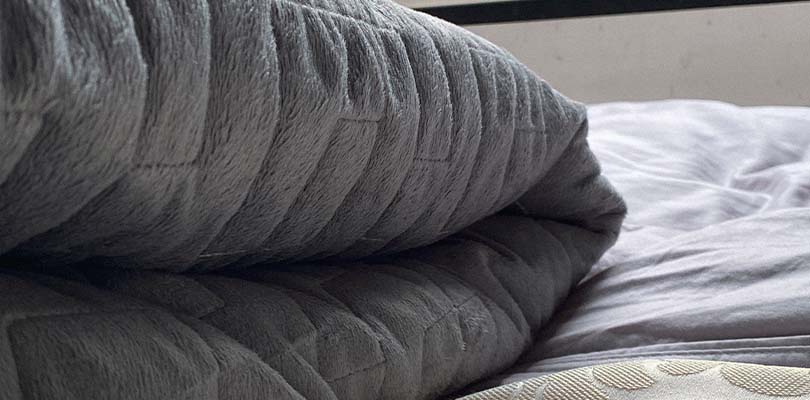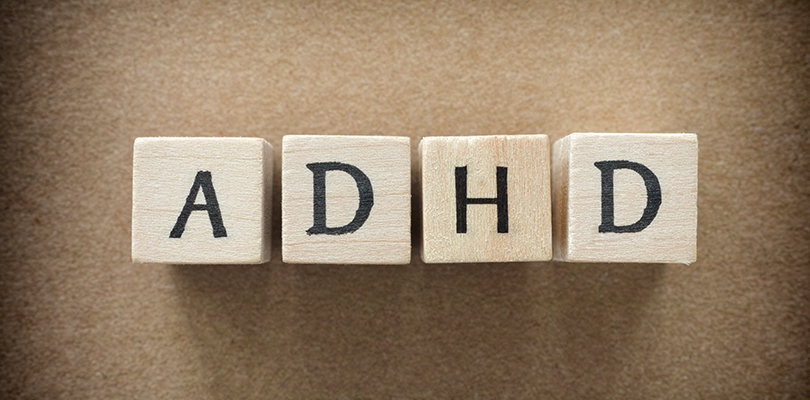ADHD and Weighted Blankets: A Way to Calm Overstimulation
Many individuals, companies and therapists say weighted blankets can help you get a good night’s rest. For someone with ADHD, struggling with insomnia can be an issue and a weighted blanket could be what they need. Therefore, ADHD and weighted blankets may be recommended.
If you are going to bed on time but cannot fall asleep because you feel overstimulated, a weighted blanket will most likely help you. Without a good night’s rest, you will be physically and mentally weakened, and this can make your ADHD symptoms worse.
In fact, anywhere from 40% to 80% of people with ADHD have insomnia symptoms. The bad news is there are no more than one or two controlled, peer-reviewed research studies on the benefits of weighted blankets for ADHD. However, occupational therapists have been using them for decades to treat autism in children. This article will provide an overview of ADHD and weighted blankets to help you decide whether you should get one.
Can Weighted Blankets Relieve Stress?
Attention deficit hyperactive disorder (ADHD) is a mental health disorder inherited through genes. It begins in childhood and is permanent. Like the name suggests, ADHD causes hyperactivity, impulsivity and inattention.
ADHD can affect a person’s ability to:
- Focus
- Manage their emotions
- Make decisions
- Manage their time
- Manage their social relationships
Weighted blankets were originally intended to help treat people with sensory processing disorder, a disorder many people with autism have. But now, people are starting to use them to treat ADHD because many people with ADHD have sensory processing problems.
How Are Sensory Processing Problems Related to ADHD?
Sensory processing problems occur with overstimulation. There are five senses: touch, sight, smell, hearing and tasting. With ADHD, touch, sight and hearing are what usually get overstimulated. Someone with ADHD might see too much movement or too much brightness. They can hear too many noises. Something can feel too sticky or rough.
In every situation the result is the same: the senses become overstimulated and the overstimulation causes a “traffic jam” in the brain. What follows is usually a meltdown or anger, coupled with the inability for the person with ADHD to think clearly until they calm down.
Weighted blankets can help prevent overstimulation, especially when lying in bed. (To prevent overstimulation during waking hours at work or school, look into weighted vests.)
Can ADHD get worse with age? Yes and no. If ADHD is not properly treated or managed, it's possible the symptoms may affect one's overall quality of life.
What Are Weighted Blankets?
Have you ever got a relaxing sensation when someone gave you a hug? Sleeping under a weighted blanket can give you the same feeling all night long. Weighted blankets are designed to be equal in weight to 10% of its user’s body weight.
Although there is no official formula for the weight of a weighted blanket, 10% is the most popular standard. They are made of regular fabrics with glass beads, plastic pellets, or rice sewn in to add extra weight without being uncomfortable.
How Do Weighted Blankets Work?
They apply pressure to your bones, joints and body, which calms your central nervous system (CNS). The CNS controls most functions of the body and mind.
The pressure of weighted blankets helps your central nervous system relax by increasing serotonin and melatonin levels while decreasing cortisol levels. However, if a blanket weights too much or too little, the pressure will feel uncomfortable instead of calming. The trick is to get a blanket in the right size and weight.
The blanket must be evenly distributed across you and the surface it is lying on. If not, the weight will be unevenly distributed and less effective. When buying a weighted blanket, you should decide what size to get based on your height and bed size, in addition to your weight.
The Truth About Weighted Blankets
If you are not struggling with sleep, a weighted blanket has little to no benefits to offer you. Something the companies who sell weighted blankets will not tell you is a weighted blanket is only useful if you are willing to go to bed on time.
How many times did you choose to stay up late this week, even when you felt tired or knew you should have gone to bed because it was late? Buying a weighted blanket will not help you go to bed on time if you are choosing to stay up late.
If you are going to bed on time but cannot fall asleep because you feel overstimulated, a weighted blanket will most likely help you.







